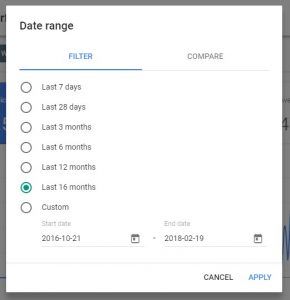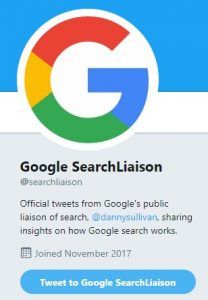
One of the easiest ways to understand SEO’s importance to the marketing mix is to pay attention to what Google says and does. Google is very keen on good SEO because it makes the internet a better place for users. If the internet is a better place for users, then Google can sell more ads.
Here are four things Google has said and done to help marketers improve SEO that you may not be aware of.
Google added an ‘SEO’ audit to its Lighthouse extension
Google is actively giving developers advice on how to improve the sites they work on: its Lighthouse auditing tool now has an SEO component that can analyse any page for basic SEO competency and tell you how to make it better.
This is a nice change for search marketers, who have for a long time made up for Google’s radio silence with research and educated guesswork. Some of the tips offered by the audit extension are fairly obvious and well known (tile tag exists, canonicals not broken, etc.), but others give an interesting insight into how Google assesses a page – such as the importance of making sure your text is big enough. Beyond being useful to marketers, it’s interesting to see how many different factors contribute to a positive user experience and correlate with a higher search engine ranking.
Google made significant improvements to Search Console
Search Console – formerly known as Webmaster Tools – helps you understand what’s going on beneath the hood of your website. It’s a comprehensive piece of software that, in its latest beta version, allows you to immediately index blogs and view up to 16 months of data in the search analytics (Performance) report.
Google has revamped its SEO guide
By relaunching its SEO starter guide, Google is offering newbies an easy way to improve the quality of their websites. If you’re reading this, you’re probably a bit beyond starter guides, but it never hurts to brush up on the basics, especially when they’re directly from the horse’s mouth – after all, who knew text size was such a big deal?It’s a useful primer for anyone looking to brush up on their on-site optimization, and a strong indicator that Google is taking organic search as seriously as ever. With content, for example, it dedicates a whole section to advice on organising topics, understanding readers’ desires, optimising copy, images, and headlines for users (not engines), writing link text, and generally creating blogs and web pages that your target audience actually wants to read.
Google has hired a new public search liaison

Finally, Google’s hiring of a public search liaison suggests not only that organic search is here to stay, but that the company is willing to be more open and transparent about it.
When Matt Cutts – who led Google’s WebSpam team and served as a kind of unofficial liaison between the company and the SEO community – resigned in 2016, search marketing professionals started communicating with Google in a number of different ways. They popped up in Google hangouts with engineers, asked questions in official Google Threads, and turned up to conferences where Google’s employees were present.
Google, in turn, started communicating more with them via the Google Security Blog, the Google Chrome blog, the general Google blog, the Google Webmaster Central Blog, the Google Analytics blog, and the Google Search blog. It then appointed its first public liaison for search in October 2017: Danny Sullivan, a former SEO journalist and analyst.
For search marketers, this is particularly important; just think back to the days before ‘(not provided)’ was your most common GA keyword. Now you have a rich bounty of keywords, just waiting to be incorporated into your search strategy.
It’s worth mentioning that Google is taking Search Console seriously: it’s actively asking for suggestions and potential improvements, and even implementing some of them.
Reference:https://searchenginewatch.com/2018/05/30/four-ways-google-is-making-seo-easier/
No comments:
Post a Comment